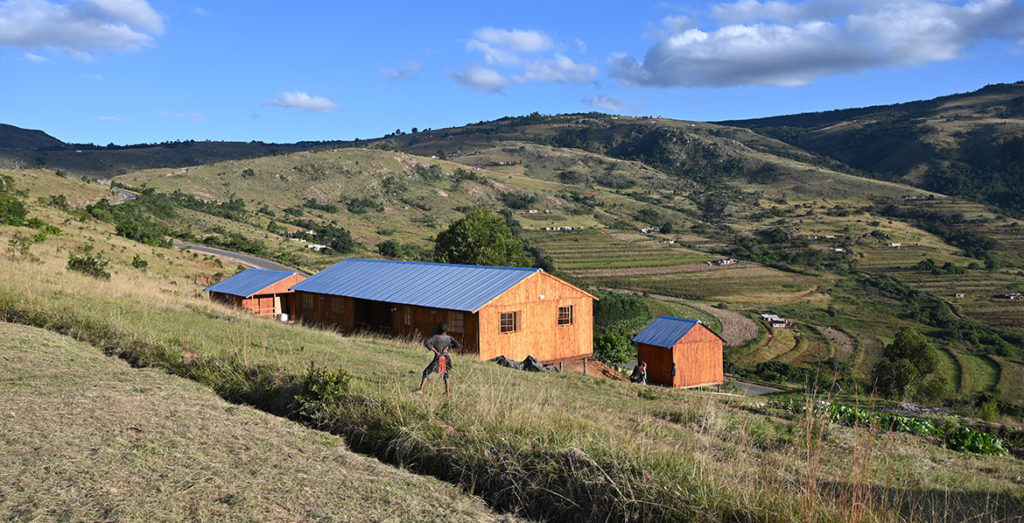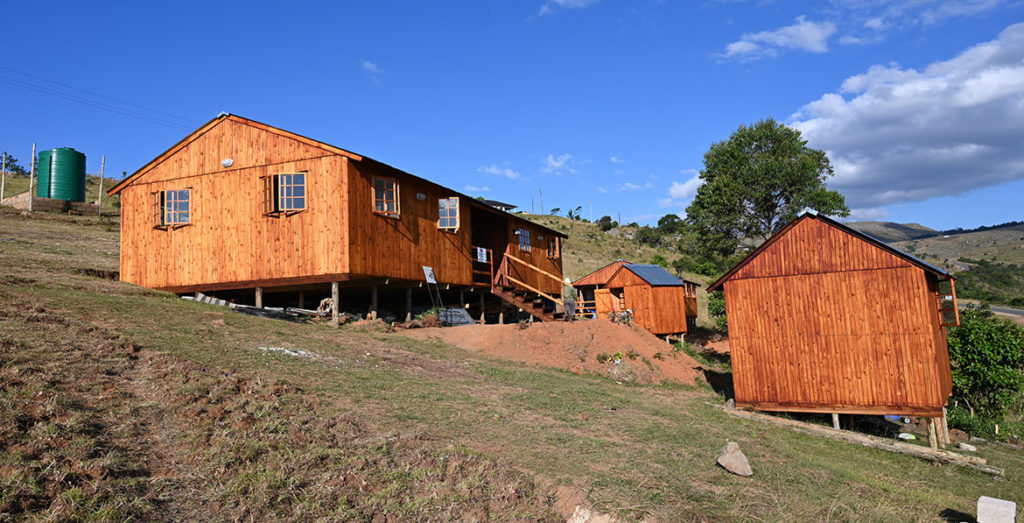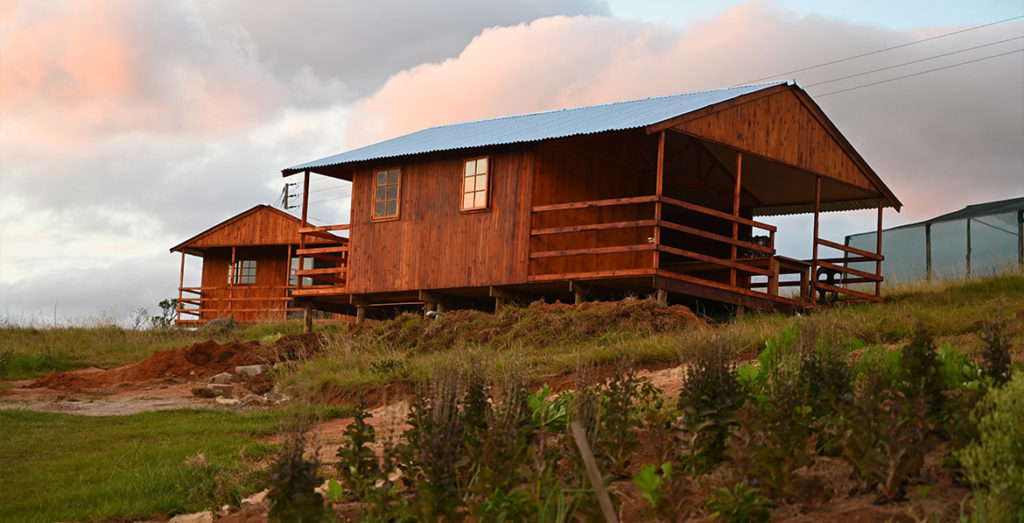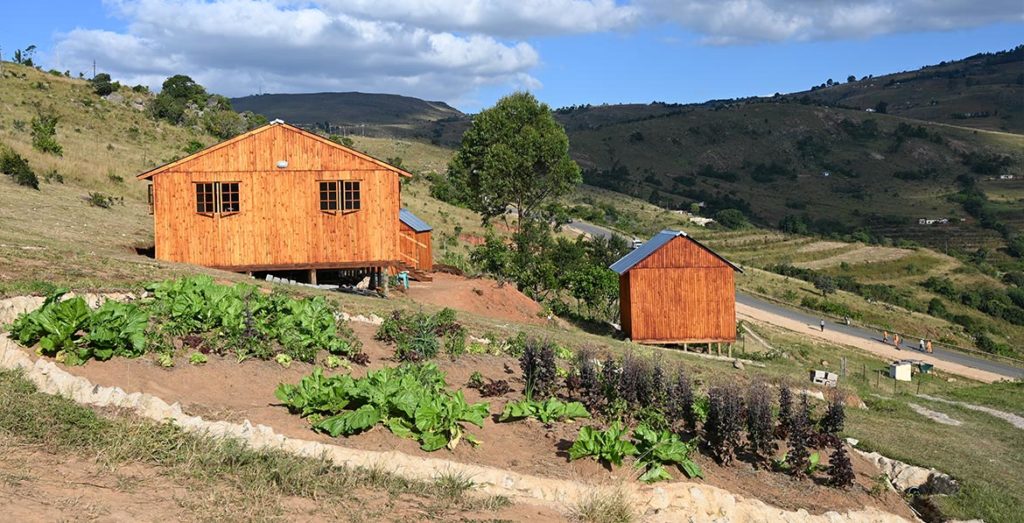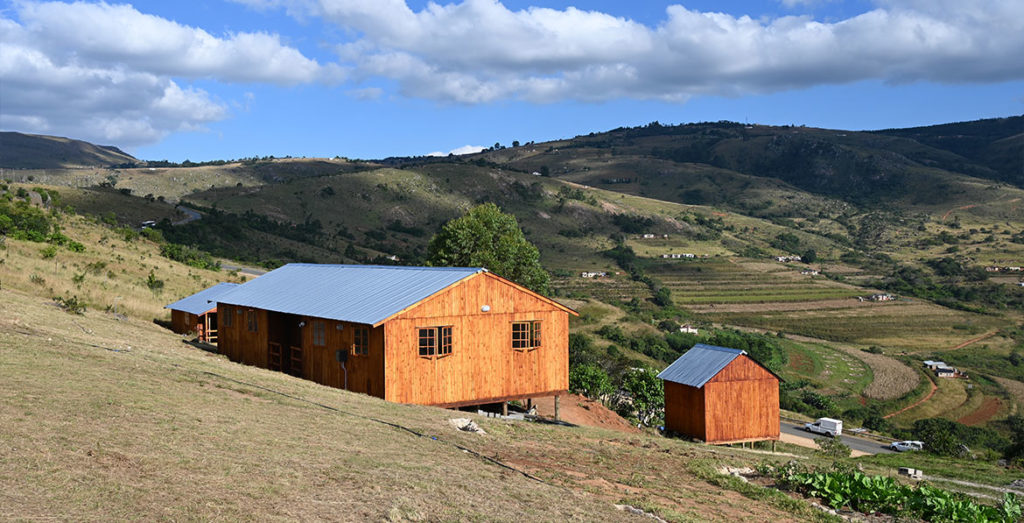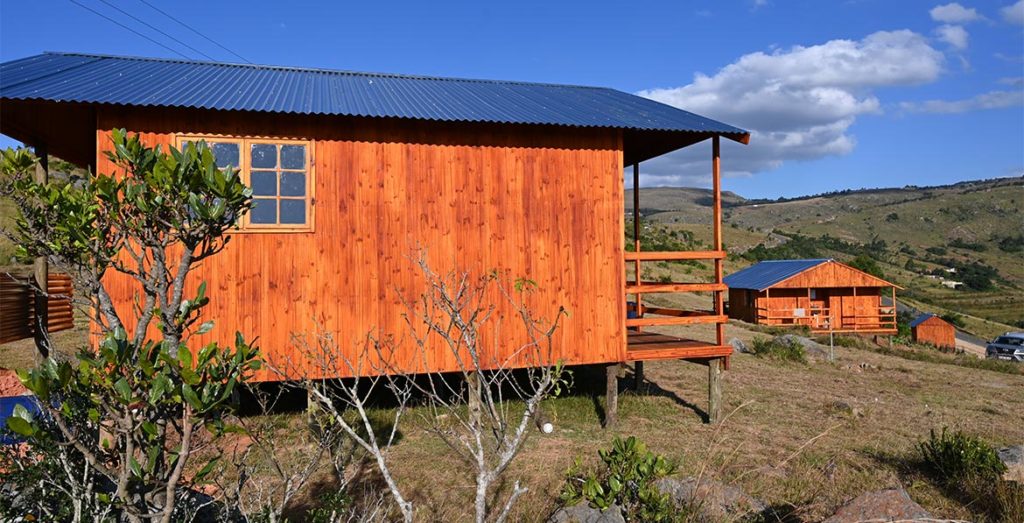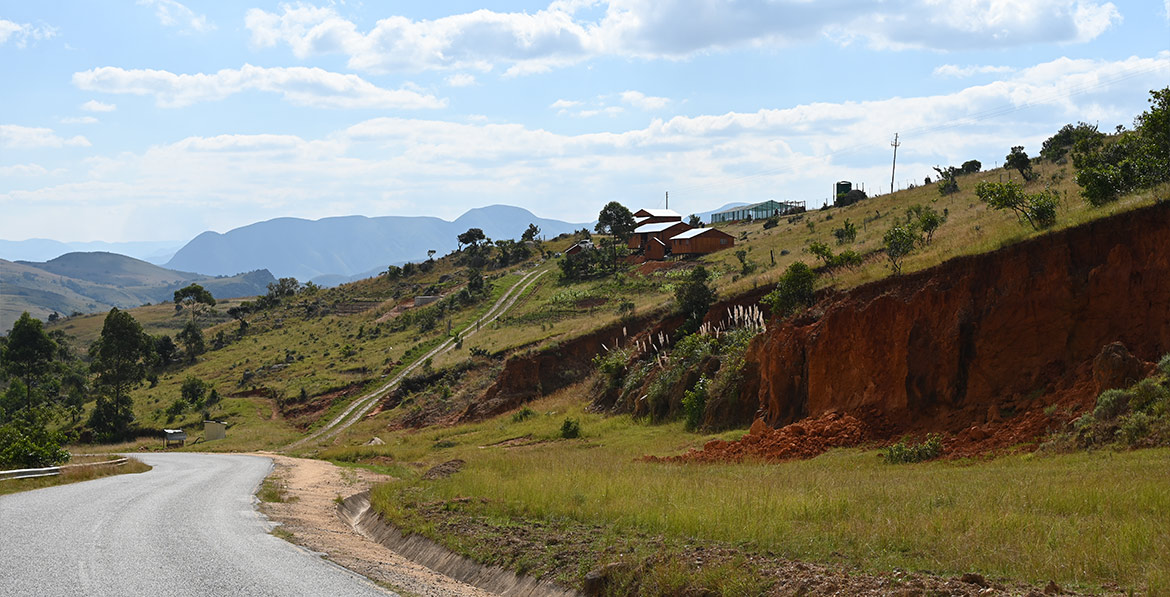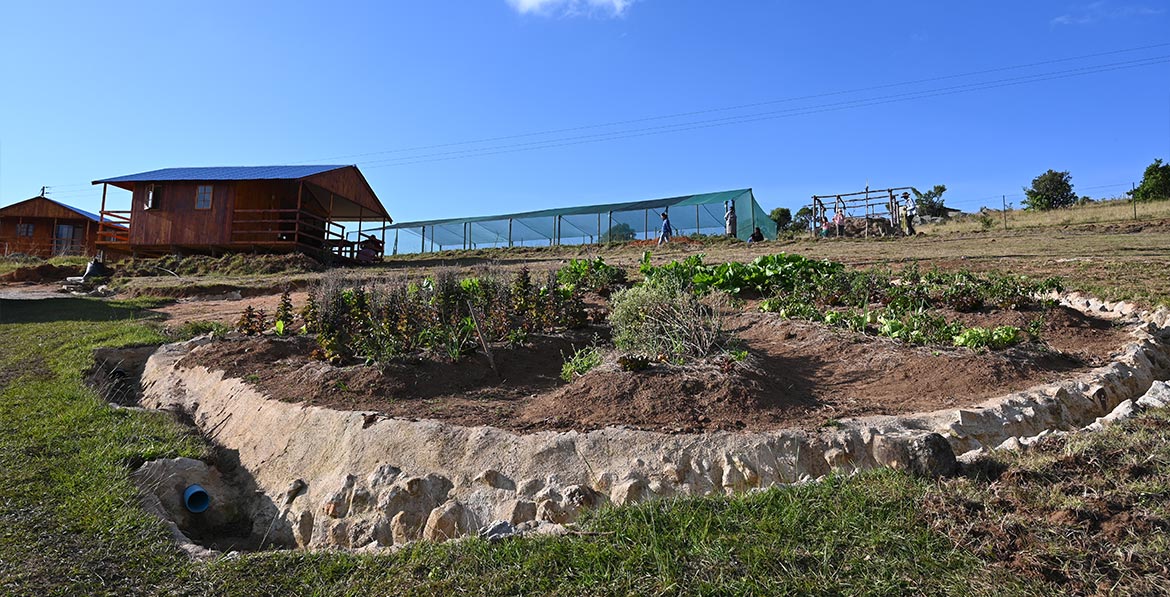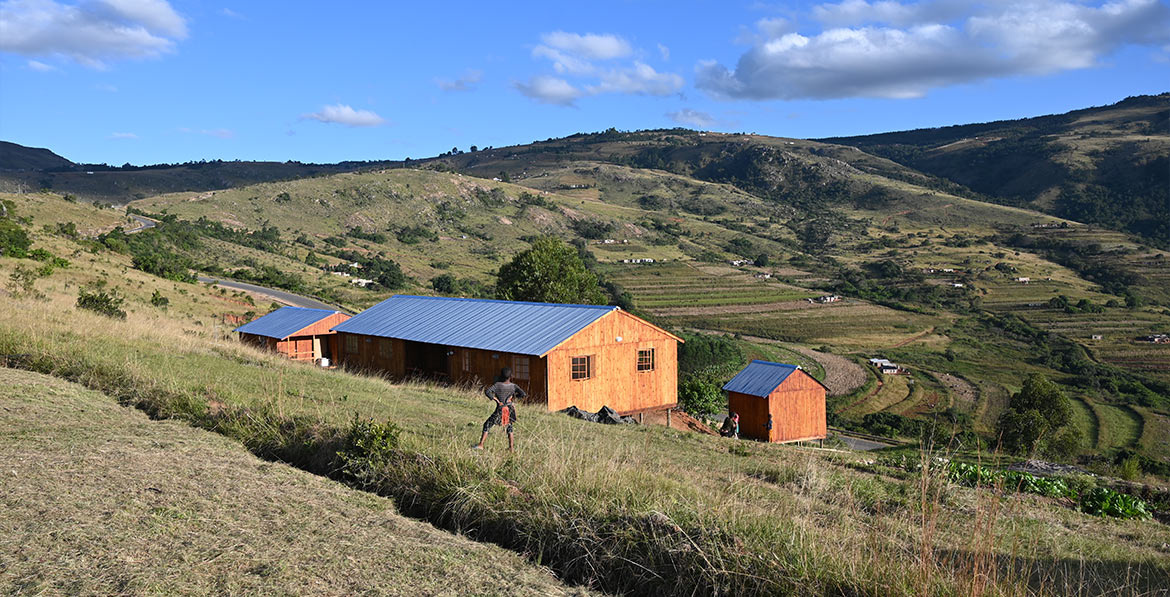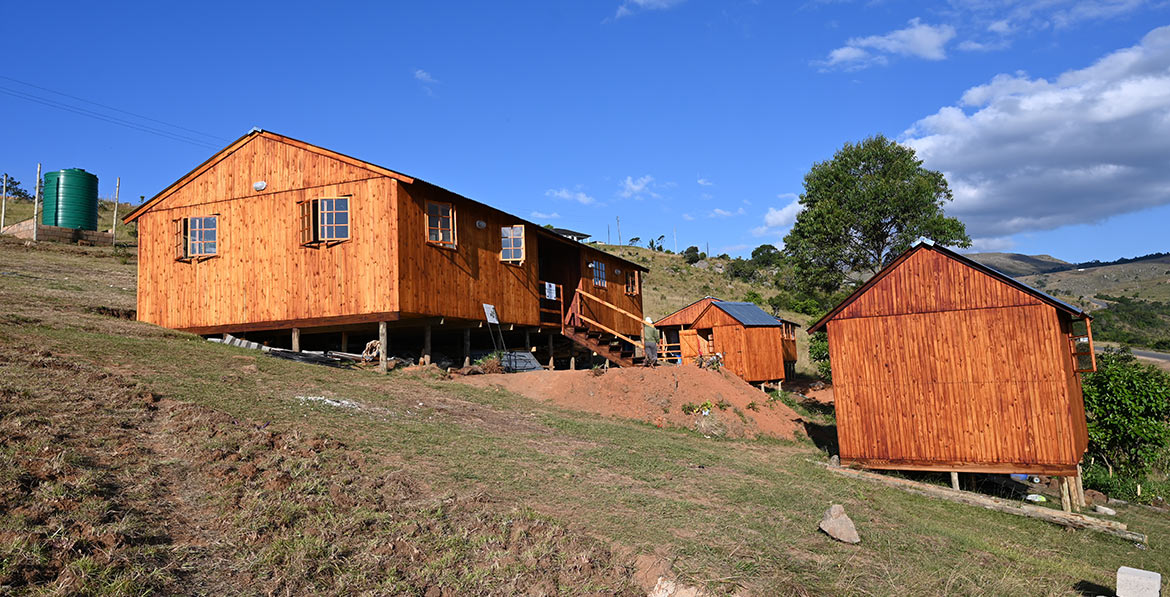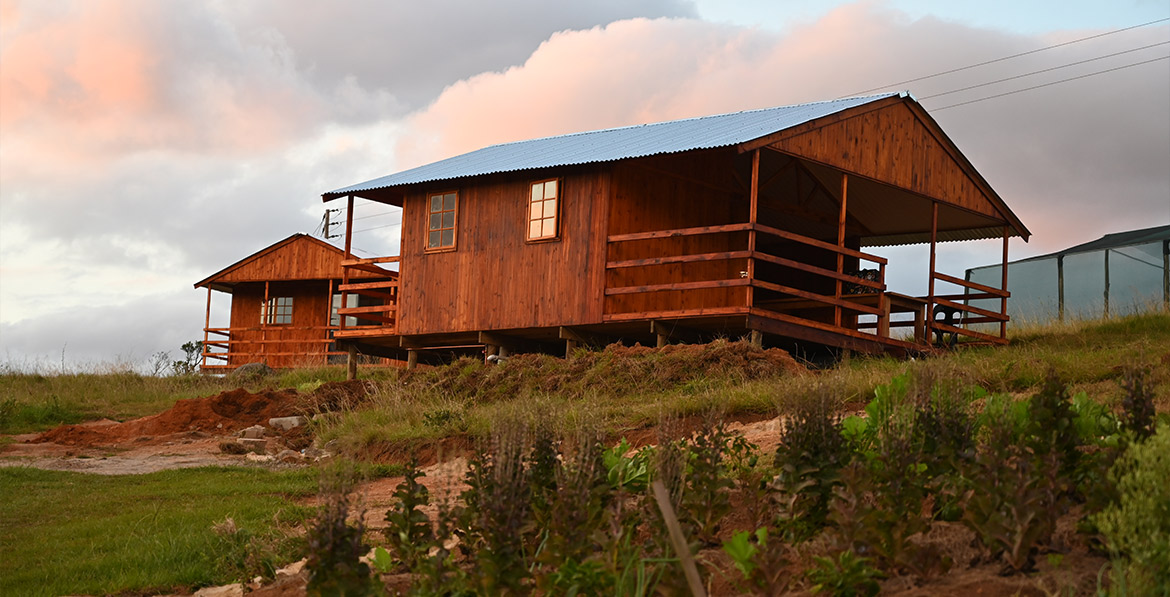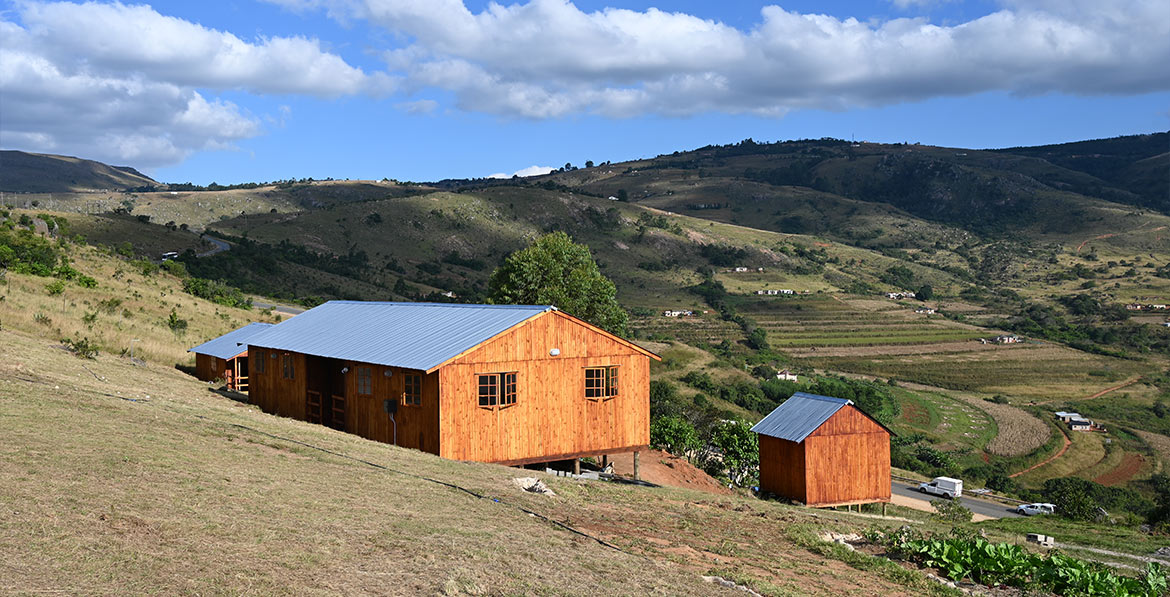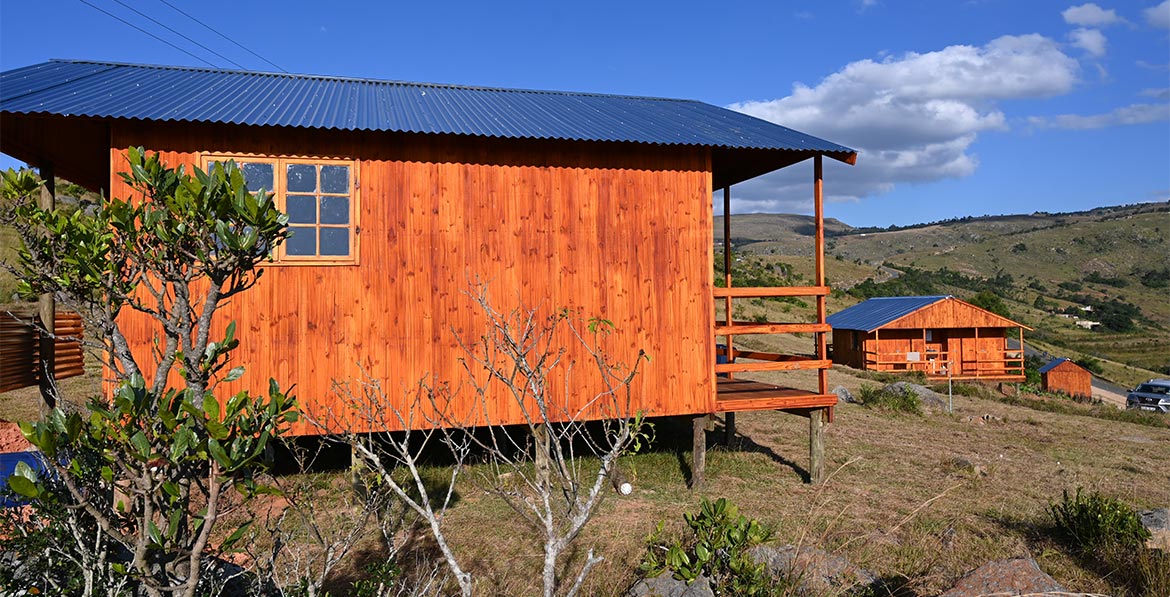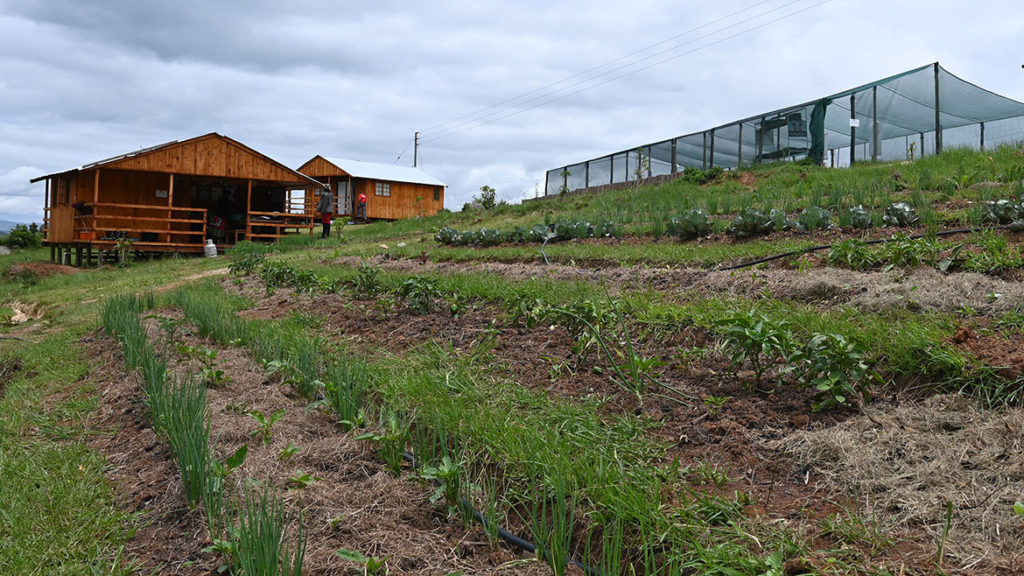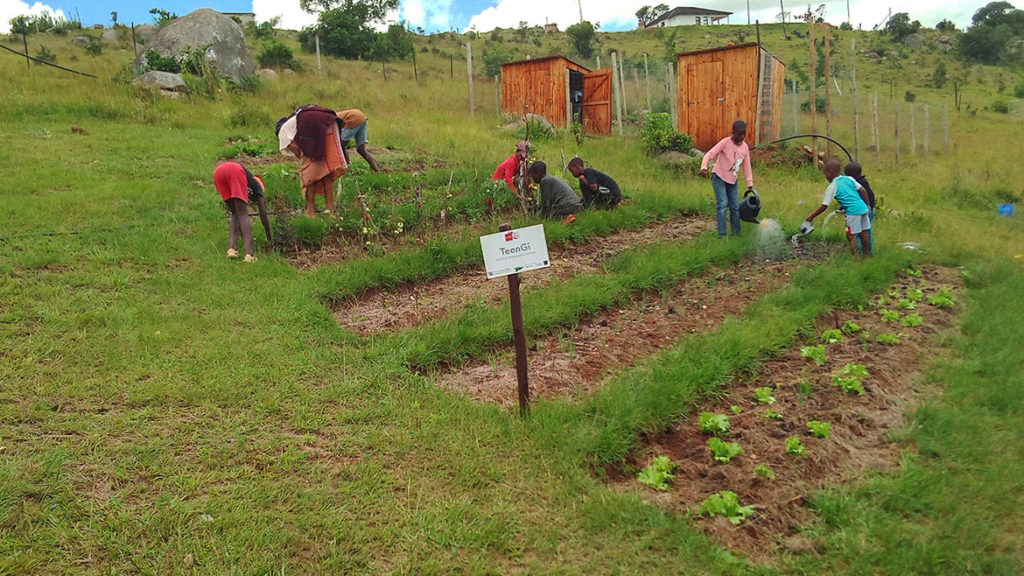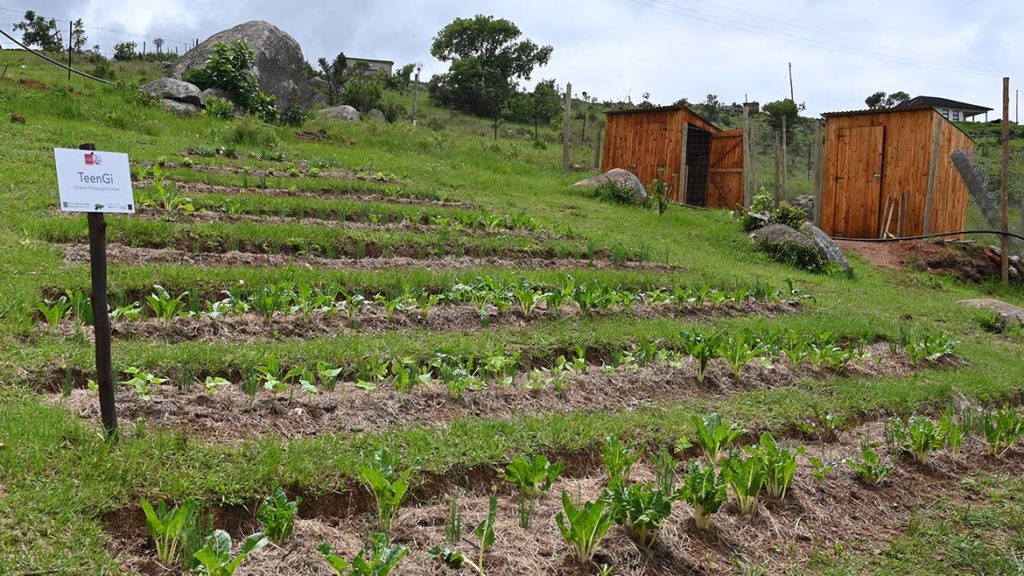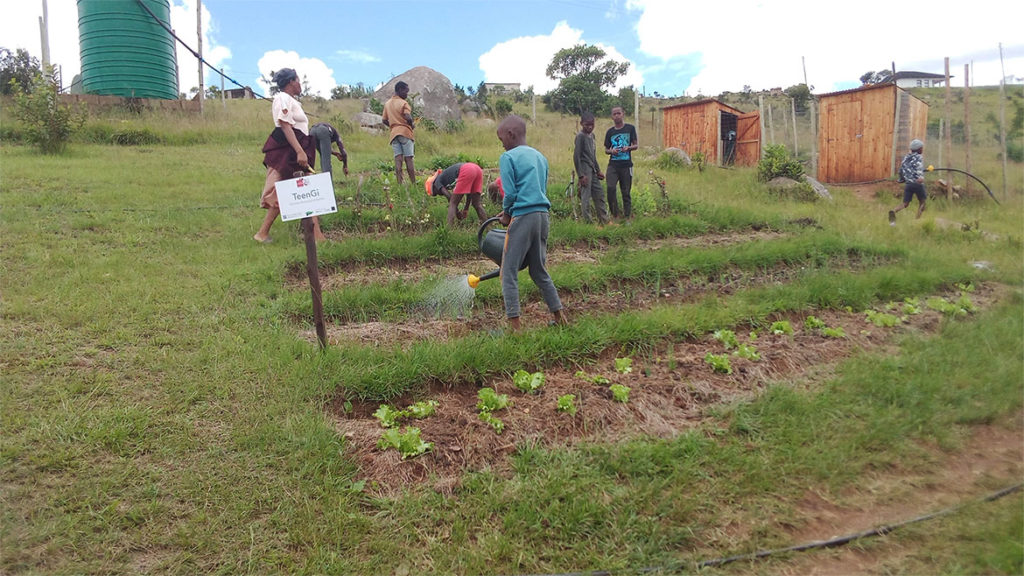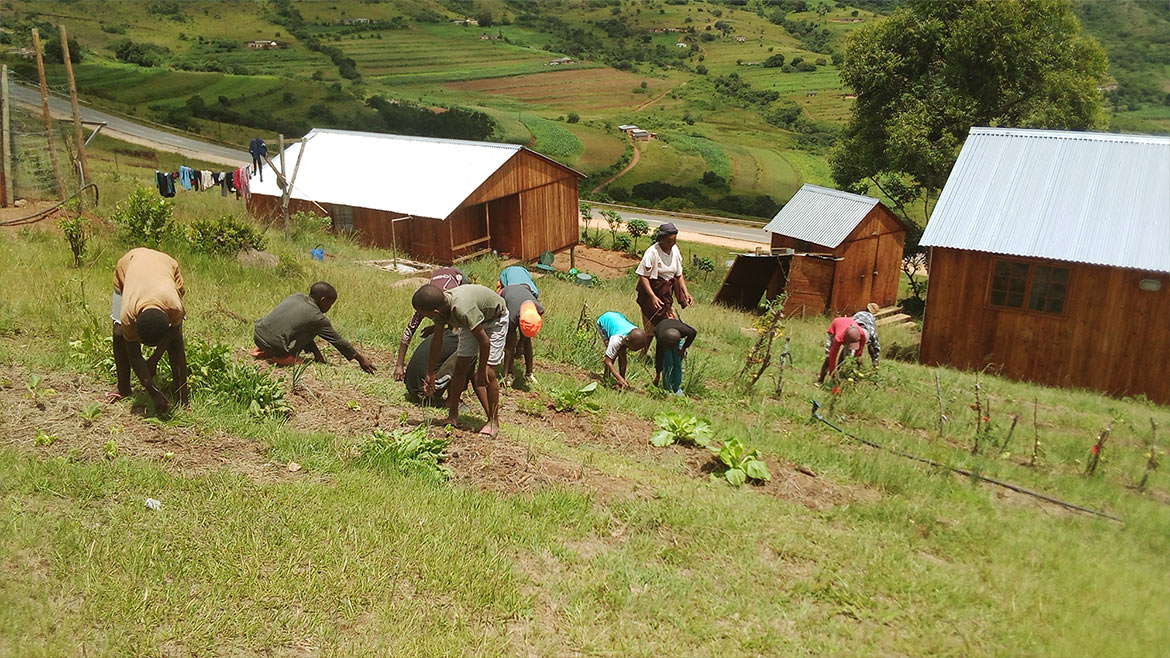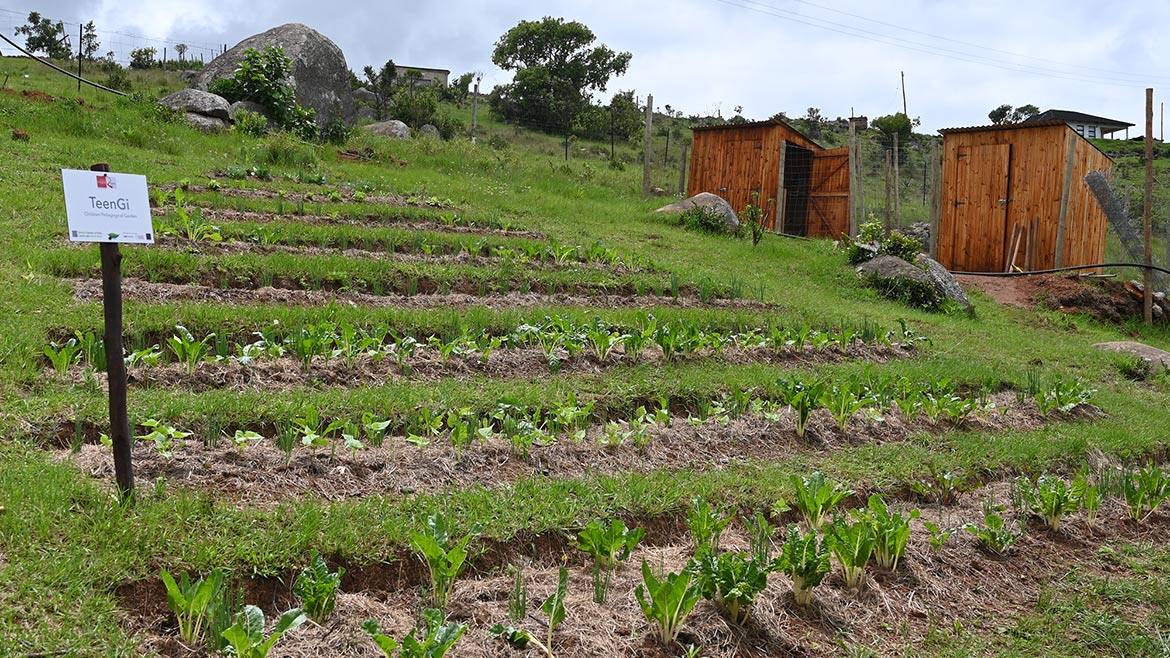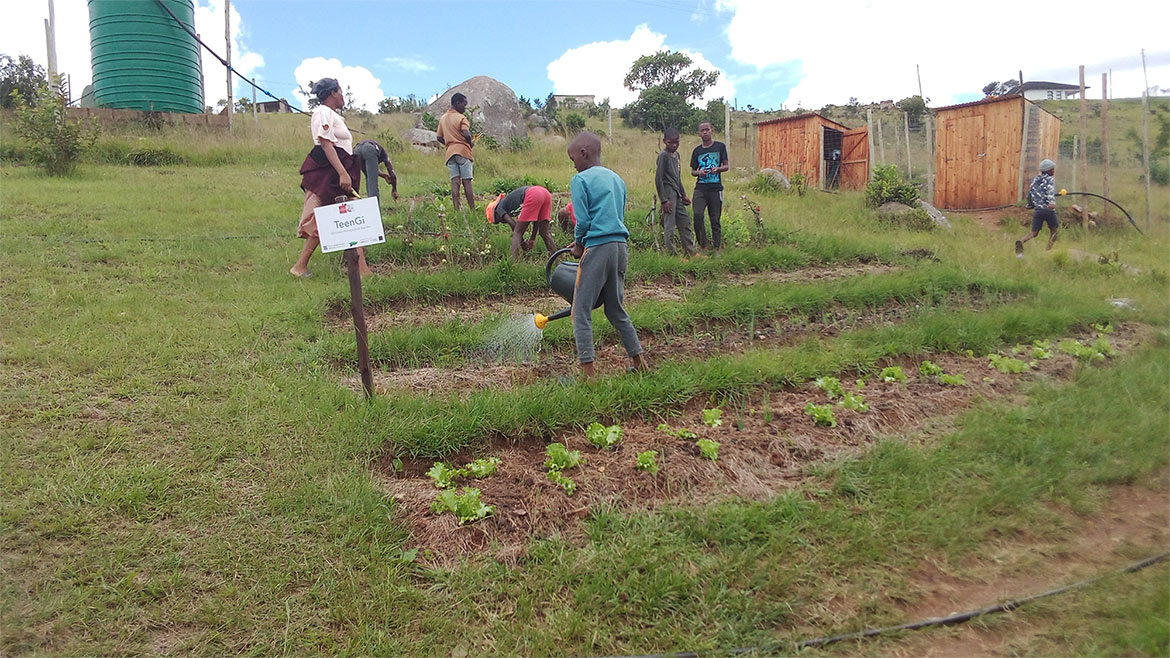The Ivory Foundation has been supporting the “Garden of Skills” since its creation in 2020.
This innovative project undertaken by Designing Hope in Malanti, Eswatini, consists of combining an agroforestry garden on the same site, in the middle of which has been set up a centre for activities and training in the fields of agroecology, agroforestry, crafts and the management of micro-projects.
Designing Hope has been based in Piggs Peak since 2005, where it has forged close links with the regional hospital and the support group for HIV-positive and vulnerable women, which was set up as an NGO in 2012.
After managing several community gardens in urban and peri-urban areas, in 3 districts of the city, the Garden of Skills marks a turning point for the two NGOs, who are moving their centre of action 20 km from the city centre, to Malanti, a rural community located on the busy main road linking Piggs Peak to Mbabane. As most of the women do not live in Piggs Peak itself, it is very easy for them to travel to Malanti, which is very well served by minibuses and shared taxis.
Designing Hope and Fundzisa Live are well known for their work in neighbouring schools, and have been offered the land to set up a training and demonstration centre for agro-ecological techniques. The outlets will directly benefit the Malanti community.
However, Designing Hope will retain part of its activities at Piggs Peak, as it has obtained permission from the hospital management to build a 40m2 facility on its premises, next to the HIV-AIDS screening centre. This branch consists of two rooms that can be used as a consultation room for young HIV-positive patients, and as a patient liaison office for the distribution of food aid.
The Garden Forest is a principle developed in agroforestry consisting of combining trees, chosen for their ability to fertilise the soil, with market garden crops. The tree species are varied, chosen for their wood production, the production of nutritious leaves for humans (Moringa), for use as fodder, for fruit production, but also for their ability to fertilise the soil, reduce evaporation and allow market gardening in an optimised setting.
The land is ideal as an example, because it resembles the vast majority of land on which the rural and disadvantaged populations of Eswatini live: a mountainside, with a few outcrops of rock. Any challenge met on this site can therefore easily be duplicated on small family plots in the Hlohlo region.
In the Garden of Skills, a plot of around twenty growing beds is reserved for the children of Malanti. This pedagogical garden, called the Teen Gi, welcomes children from the community for gardening workshops or educational games on the theme of the garden, developed with the support of The Ivory Foundation. The children come in groups after school and on Saturdays to tend to the planting in their garden, accompanied by one of the women in charge of the activities. By raising children’s awareness, Designing Hope also hopes to reach parents and encourage them to develop an agro-ecological vegetable garden on their own land.



